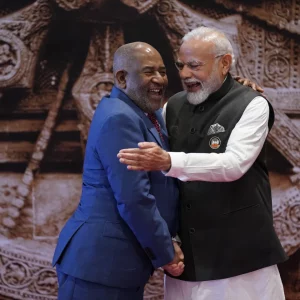
Source: New York Times
Will the Supreme Court one day rule on same-sex marriage nationwide? Suddenly the answer is looking to be no. In a surprise move, the Supreme Court today announced they “let stand appeals court rulings allowing such unions in five states.” Via The New York Times:
The decision to let the appeals court rulings stand, which came without explanation in a series of brief orders, will almost immediately increase the number of states allowing same-sex marriage from 19 to 24, along with the District of Columbia. The impact of the move will in short order be even broader.
Monday’s orders let stand decisions from three federal appeals courts with jurisdiction over six other states that ban same-sex marriage: Colorado, Kansas, North Carolina, South Carolina, West Virginia and Wyoming. Those appeals courts will almost certainly follow their own precedents to strike down those additional bans as well, meaning the number of states with same-sex marriage should soon climb to 30.
A majority of states recognizing same-sex marriages would be a symbolic death-knell for gay marriage’s opponents. In the next ten years there may be few, if any, states left barring gay couples from getting married.
What’s next for the losers? If the battle is lost, at some point the savviest combatants will lick their wounds and find another tail to pin on the donkey. Two major political losses among conservatives in the last eight years are the battle over same-sex marriage and the war over Obamacare. In both cases, the oldest movers and shakers on the right will grow silent; drawing attention to other progressive villainies. A new generation of Republicans will run for office, and, marked by their youth, they will support same-sex marriage and be indifferent to Obamacare.
What’s next for the winners? The Human Rights Campaign may focus on other issues, but its modus operandi has been rallying human, political, and financial capital around the plain injustice of marriage bans. Their mission was to normalize homosexuality, and they’re succeeding; but does normalization come at the cost of excluding “fringe” elements? Does the marriage equality campaign mean that gays are a part of the mainstream, and as part of the mainstream, they’ll disassociate from aspects of their experience of exclusion? It’s difficult to say whether an organization like HRC has the motivation to pivot to new battles after marriage equality. It surely will pursue workplace rights for gays; less certain is whether it will apply the same tenacity in seeking protections for transgendered persons and homeless queer youth.
What is certain, however, is that predictions are fun but silly. Most politicos were ready to bet their bottom dollar the Supreme Court would have the final say in this whole gay marriage thing. Instead, the Supreme Court opted out, an all-too-rare moment of wisdom for one of our nation’s most venerable institutions.





Be First to Comment